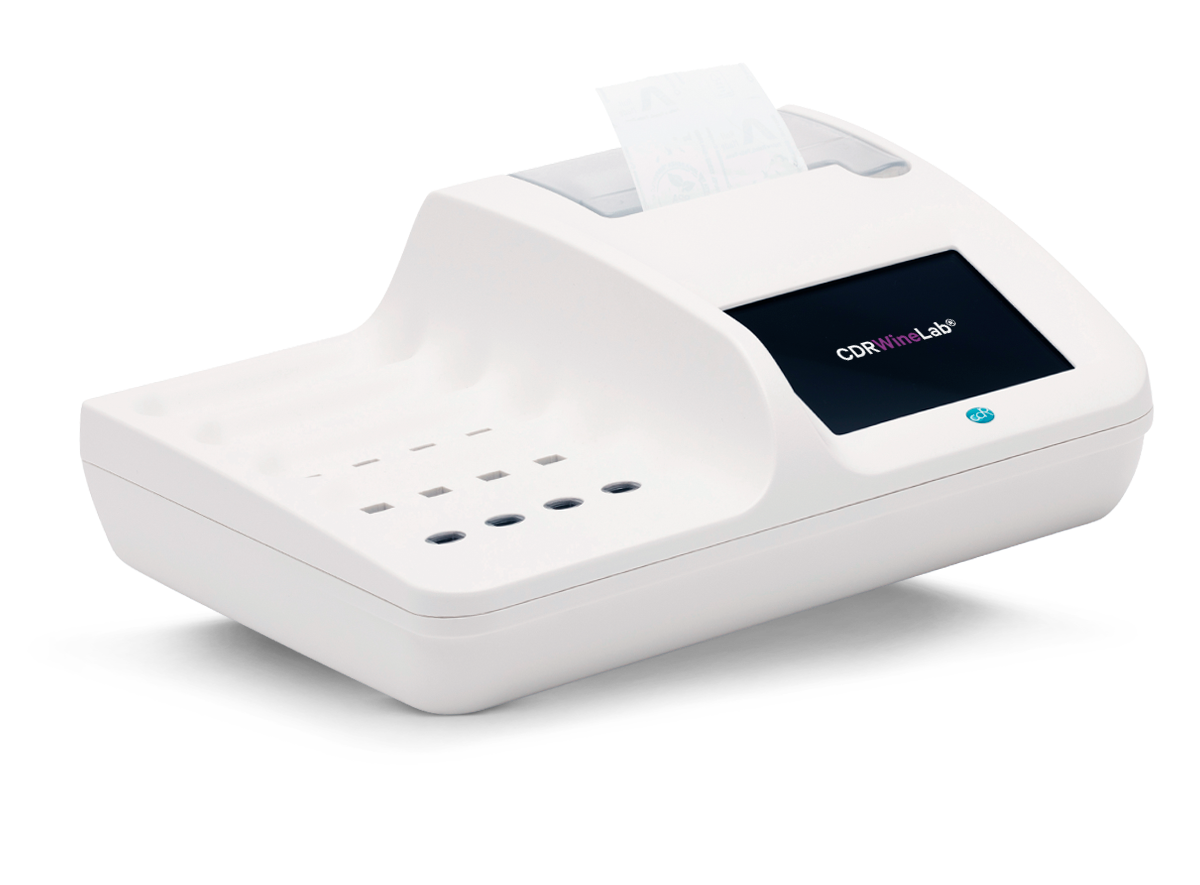Determination of Citric Acid in wine
Citric acid occurs naturally in must and its concentration decreases during fermentation. It is a compound that can contribute to improve the organoleptic characteristics of the finished wine, which is why it can be used as an additive, but by law the content may not exceed 1 g/L.
Method
Test type: End Point.
Time testing: 6 minutes.
Analysis sessions with multiple samples are possible up to a maximum of 16 tests for CDR WineLab® and 3 tests for CDR WineLab® Junior.
...
Sample treatment
Wine is analyzed as it is. If necessary (sparkling or fermenting wine), the sample shall be degassed using the specific ultrasonic bath (code 222062). In case of tests performed on must, the sample shall be centrifuged (code 222061) or filtered (code 300210).
Principle of the test
Through an enzymatic reaction, citric acid is converted into oxalacetate and then into malate that reacts with NADH producing NAD+. The reduction of absorbance, measured at 366 nm (end-point), of the NADH solution is proportional to the quantity of citric acid present in the sample.
Calibration curve
The calibration curve of the CDR WineLab® instrument, performed using standards with a known concentration of citric acid, confirmed an excellent linearity of the system over the entire measurement range.
...
Reagent test Kits
Measuring range
| Analyses | Measuring range | Resolution | Repeatability |
|---|---|---|---|
| Citric Acid [0.1-1.0] g/L | 0.1 - 1 g/L | 0.01 g/L | 0.04 g/L |
Analyzers for process and quality control in winemaking
CDR WineLab®
Complete analysis panel, supplied already configured
Up to 16 determinations simultaneously
Possibility of carrying out analyses of the same sample
Integrated printer
Full connections (LAN - USB - Bluetooth barcode/QR code reader)
CDR WineLab® Jr
Partial analysis panel, customisable configuration
Up to 3 determinations simultaneously
Wireless connection to external printer
USB connections
